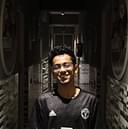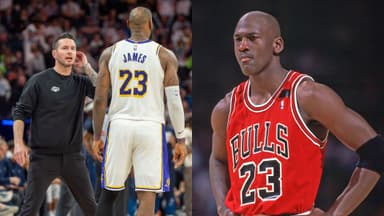Michael Jordan‘s father, James Jordan, always destined his younger son to become a star in baseball. MJ’s older brother, Larry, seemed like the brighter prospect in basketball. However, little did James Jordan know that his son would be captivated by the beauty of basketball enough to etch himself as a legend of the game in the annals of sports history. In the 2014 book Michael Jordan: The Life, Roland Lazenby wrote extensively on all the influences and events that inspired His Airness to choose basketball. One such event was during the final game of the 1972 Olympics basketball tournament in Munich, West Germany, between the United States and their arch-political and sporting rival of that time, the Soviet Union.
Advertisement
The game came to a controversial Soviet Union win by 51-50, beating the United States’ previous unprecedented 63-0 record before this ill-fated final in the Olympics. During the game’s final minutes, USA’s Doug Collins was awarded a free throw after being fouled hard by a Soviet defender. Collins sank both the free-throws, giving the Americans a narrow 50-49 lead.
The controversy stirred further when the Soviet coaches complained of a timeout they had called between Collins’s free throws not being granted. An International Basketball Federation (FIBA) rule at that time did not allow for timeouts after a second free throw. Hence, the Soviets naturally rushed the ball across the court, and it almost seemed like the Americans were just a moment away from yet another Olympic gold medal.
In just the nick of time, it was revealed that the scoreboard operator did not reset the clock, which demanded the head of international basketball to rule for the Soviets to get another chance to inbound the ball. During this moment, Soviet Forward Aleksander Belov received a Hail Mary-style pass from Ivan Edeshko, allowing Belov to make an uncontested game-winning layup as the Americans lost position.
Like every other American, Michael Jordan was also furious watching his national team unfairly lose their chance of winning a gold medal on the biggest international stage. An agitated Jordan retreated to the kitchen to tell his mother that he was determined to win his country a gold the day he got the chance to play in the Olympics.
Jordan’s mother, Deloris, was extremely surprised but proud to hear her young son make such a bold claim. Not wanting to discourage MJ, Deloris smiled to herself and said, “Honey, that takes a lot to win the gold medal.” Sure enough, MJ understood the grind and mindset it takes to win and adapted it for the rest of his life.
Michael Jordan kept his word to his mother and won the 1984 Olympic gold
Michael Jordan was sure a man of his word, even if it was from almost 12 years back. During his senior year of college in North Carolina, Jordan was selected to represent Team USA in the 1984 Olympics alongside other future NBA stars such as Patrick Ewing, Sam Perkins, Chris Mullin, Steve Alford, and Wayman Tisdale.
The team went 8-0 in their campaign in the tournament, with Jordan leading the team in scoring with an average of 17.1 points per game. Evidently, Team USA won the gold medal, and Michael Jordan finally kept his word to his mother. The 1984 Summer Olympics was essentially a coming-out party for the young MJ, who would soon take the league over by storm after being drafted to the Chicago Bulls that very same year.
Jordan continued this same feat in 1992 when he played part of the Dream Team in the 1992 Olympics in Barcelona. The Dream Team was star-studded with some of the best talents in the league, such as Larry Bird, Magic Johnson, Charles Barkley, and His Airness himself.
The other international teams virtually faced no chance against this formidable Team USA in winning a gold medal in this tournament. The legacy of the Dream Team remains the most dominant international team in the history of basketball in the Olympics. The Naismith Memorial Basketball Hall of Fame regards the team as “the greatest collection of basketball talent on the planet.”





